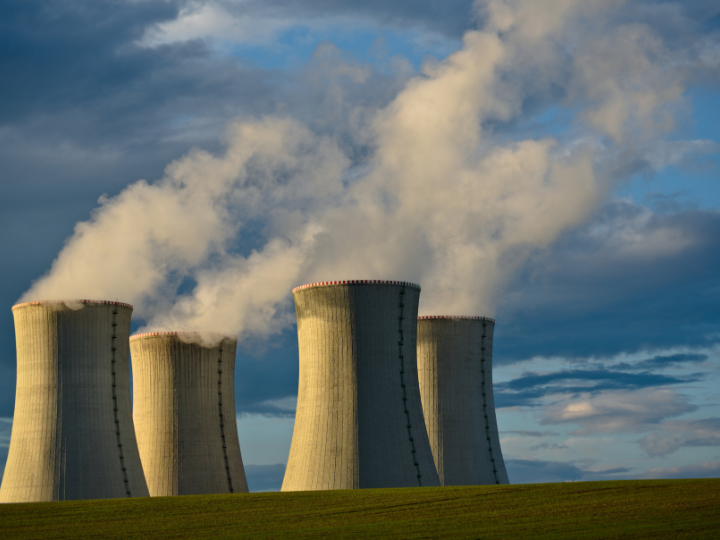by Nikolaus J. Kurmayer
Chancellor Olaf Scholz has cracked down on his infighting government coalition, using his constitutional final say to resolve the dispute over the continued operation of nuclear power plants amid an energy crisis.
The last three German nuclear power plants, slated to be shut down at the end of the year, have been a contentious topic in Berlin for weeks. Amid an energy crisis, the liberal FDP argued against shutting down electricity sources, while the anti-nuclear Greens insisted on the shutdown date.
Faced with significant nuclear power plant outages in France, the transmission grid operators recommended keeping the Southern two available for an emergency. With the FDP dissatisfied, infighting ensued. When multiple emergency meetings failed to resolve the issue, Scholz settled the matter.
“I, as Chancellor, … have decided, as follows,” reads a letter Scholz addressed late Monday, to the squabbling Finance, Economy and Environment ministers, which was seen by EURACTIV. German Chancellors are granted a constitutional right to executive orders.
For one, Scholz decreed that all three operating nuclear power plants should be able to run until 15 April 2023.
To sweeten the deal for the anti-nuclear Greens, he announced “an ambitious law to increase energy efficiency” as well as enshrining the 2030 coal exit in North Rhine-Westphalia, Germany’s biggest state home to over 17 million people.
Just days before, the Greens’ party convention decided against keeping all three nuclear power plants on the grid. Their second red line was the acquisition of new fuel rods, which as of Monday night won’t be acquired by Germany.
Finance Minister Christian Lindner, a stark proponent of nuclear power plants in recent times, was jubilant.
“The continued use of the Emsland nuclear power plant is an important contribution to grid stability, electricity costs and climate protection,” he said on Twitter.
Linder made sure that Scholz’s decision was a victory for the FDP. “The proposal, therefore, has the full support of the Free Democrats,” he added.
So far, the leading Greens, Economy Minister Robert Habeck and Foreign Minister Annalena baerbock, have been reluctant to comment on what observers perceive to be a tough pill to swallow for the anti-nuclear party.
The Greens in parliament, whose assent is required to keep the plants running, were openly disgruntled.
“It is regrettable that Olaf Scholz and the SPD are apparently prepared to put the Emsland nuclear power plant into reserve operation, although there is no factual or technical reason for this,” explained the co-whips Britta Ha?elmann and Katharina Droge, both of whom are openly anti-nuclear.
“We will now consult with our group on how to deal with the Chancellor’s decision,” they added.
Environmental NGOs, for their part, were critical.
“The continued operation of all three German nuclear power plants is unnecessary and dangerous. With his lonely decision, the Federal Chancellor simply wants to have the ageing reactors declared ‘safe’ by law,” explained Sascha Muller-Kraenner, CEO of Environmental Action Germany (DUH).
*first published in:Euractiv.com




 By: N. Peter Kramer
By: N. Peter Kramer

